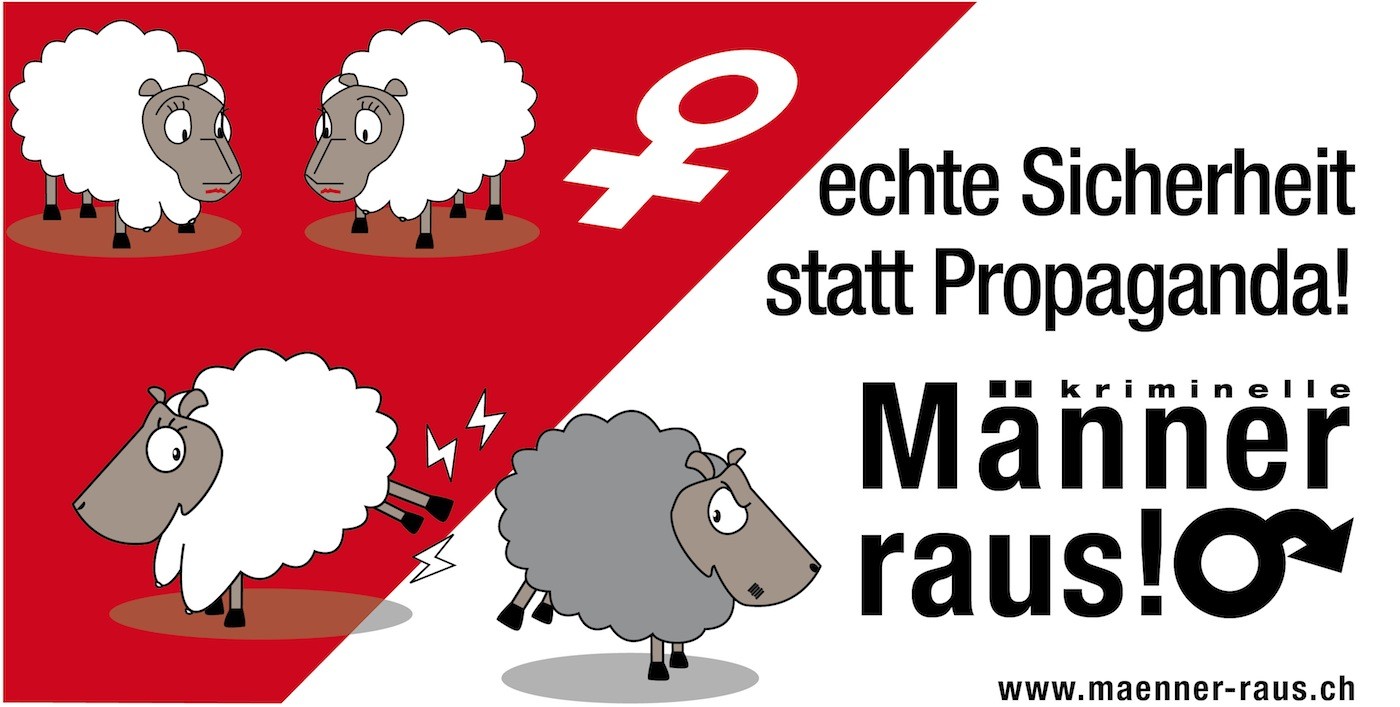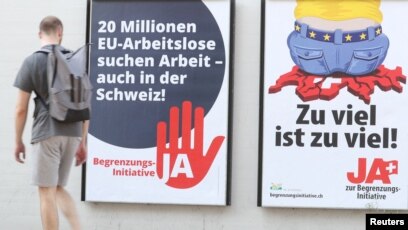

"Today's decision opens old wounds, further expands the principle of legal inequality, and sends a clear signal of exclusion to the Muslim minority," it said. The Central Council of Muslims in Switzerland called the vote a dark day for the community. He called facial covering "a symbol for this extreme, political Islam which has become increasingly prominent in Europe and which has no place in Switzerland". That is a sign of our basic freedoms," Walter Wobmann, chairman of the referendum committee and a member of parliament for the Swiss People's Party, had said before the vote. "In Switzerland, our tradition is that you show your face. The proposal under the Swiss system of direct democracy does not mention Islam directly and also aims to stop violent street protesters from wearing masks, yet local politicians, media and campaigners have dubbed it the burqa ban. The measure to amend the Swiss constitution passed by a 51.2-48.8% margin, provisional official results showed. "We've demanded this for years and for decades it was a recipe for success for Switzerland.A far-right proposal to ban facial coverings in Switzerland won a narrow victory in a binding referendum on Sunday instigated by the same group that organised a 2009 ban on new minarets. "I emphatically demand that the three biggest parties should each have two seats and the fourth biggest party has one," Brunner said. The SVP and FDP currently have one seat each. Sunday's result prompted calls from the right for greater representation in Switzerland's seven-member governing council, the composition of which will be decided in December by parliament. With slogans like "Stay free!" the SVP has also played to fears that Switzerland may head towards EU membership, while also producing tongue-in-cheek YouTube music videos in a bid to appeal to younger voters. During the election campaign, the SVP rallied against Swiss reforms to deal with asylum seekers, even though in Europe's current migrant crisis Switzerland is having to handle far fewer migrants than some other nations such as Germany. The pro-business Liberal Party (FDP), Switzerland's third largest party, saw its support edge up 1.2 points and is seen gaining three extra seats, tilting parliament further to the right. Their share of the vote rose 0.2 percentage points to 18.9 percent but they were set to lose two seats, according to the SRF projections. "STAY FREE!" The left-leaning Social Democrats (SP) finished in second place. But the latest right-wing gains should keep pressure on Bern to take a hard line with Brussels as it seeks to implement the immigration referendum.

The Swiss system of direct democracy means citizens decide most major issues in referenda regardless of parliament's makeup.
#Svp switzerland free#
Lawmakers have until 2017 to reconcile this referendum result with an EU pact that guarantees the free movement of workers, otherwise the Swiss government must write quotas into law regardless of any compromise with the EU. The SVP had strongly supported the restrictions. The election gains for the SVP, which was already Switzerland's biggest single party, come 20 months after the Swiss in a referendum backed limits on foreigners living in the Alpine nation. This would translate into an extra 11 seats, bringing their total tally in the 200-member lower house to 65, the best result for any party in at least a century. The SVP won 29.5 percent of the vote, according to projections from Swiss broadcaster SRF, up from 26.6 percent in the 2011 vote and far exceeding expectations. "The people are worried about mass migration to Europe." Sunday's result cements the SVP's position as the dominant force in Swiss politics. "The vote was clear," SVP leader Toni Brunner told Swiss television.

Immigration was the central topic for voters amid a rush of asylum seekers from the Middle East and North Africa to Europe. Success for the Swiss People's Party (SVP), coupled with gains made by the pro-business Liberal Party (FDP), led political commentators to talk of a "Rechtsrutsch" - a "slide to the right" - in Swiss politics.

By Joshua Franklin ZURICH (Reuters) - The anti-immigration Swiss People's Party (SVP) won the biggest share of the vote in Sunday's national parliamentary election, projections showed, keeping pressure on Bern to introduce quotas on people moving from the European Union.


 0 kommentar(er)
0 kommentar(er)
